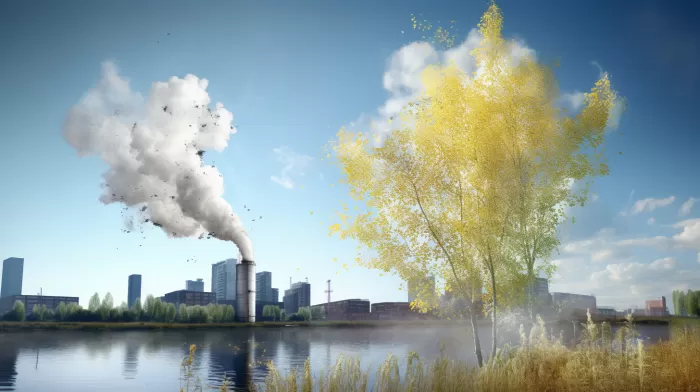If you’re one of the millions who struggle with hay fever or other allergies, you may have noticed symptoms seem to get worse each year. It’s a frustrating experience, but now scientists believe they’ve found the culprit for this yearly misery: pollution.
The Birch Pollen Connection
Researchers at the Messerli Research Institute in Vienna discovered that a protein in birch pollen, called Bet v 1, resembles a human protein found in the lungs known as lipocalin 2. Both proteins have areas on their surfaces where they bind with iron. When these proteins interact and they both lack iron, the pollen causes an allergic reaction. This summons immune cells called T-helper 2 cells, which kick off your allergy symptoms.
The pollen is iron-deficient because of the polluted environment plants are now struggling to survive in. “Iron loading of the birch protein may be connected to the aggravated environmental conditions acting on plants,” says researcher Erika Jensen-Jarolim.
The Pollution Problem
It seems that there may be a direct link between environmental pollution and the rising allergy statistics. Pollution from cars, factories, chemical plants, and agricultural runoff has caused changes in pollen’s chemical composition, making it more likely to cause allergic reactions.
Combating Allergies in a Polluted World
So what can you do to minimize the impact of pollution on your allergies? While it’s impossible to avoid pollution entirely, there are steps you can take to lessen exposure and strengthen your body against allergens.
1. Monitor allergen levels in your area
Be aware of when pollen counts are high, and try to stay indoors during those times. You can track pollen and other allergens through websites like the National Allergy Bureau or through apps like Allergy Alert.
2. Create a clean indoor environment
Keep your windows closed and use an air purifier with a HEPA filter to remove pollen and other allergens from the air inside your home. Regularly dust and vacuum to reduce your indoor exposure to allergens.
3. Boost your immune system
A strong immune system will help your body better combat allergens. Focus on eating a balanced diet, getting regular exercise, and managing stress, all of which can help improve your immune function.
4. Try natural remedies
Some people find relief from their allergy symptoms through natural remedies. These can include herbal supplements like butterbur and quercetin, as well as saline nasal sprays, which can help flush allergens out of your nose.
5. Consider allergy immunotherapy
For those with severe allergies, allergy immunotherapy, also known as allergy shots, can be a beneficial option. Researchers suggest that, by targeting iron-deficient allergens in a treatment, allergy sufferers can potentially experience shorter treatment periods and increased effectiveness.
Take Control of Your Allergies
Allergies can be a major disruption to your daily life, but with a better understanding of the underlying causes and the implementation of practical steps, you can start to regain control. By taking measures to avoid environmental pollution and supporting your immune system, you can help lessen the impact of allergies on your life.



